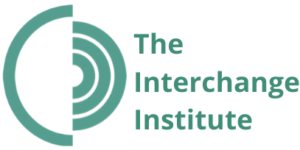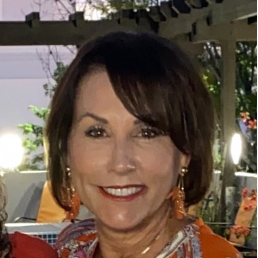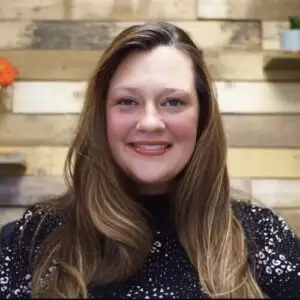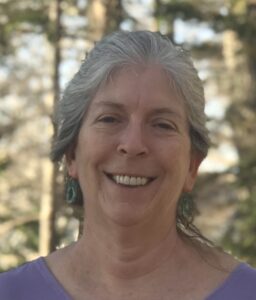Dear Friend,
I got my second vaccine two weeks and two hours ago. I am literally on the cusp of re-entry, of return from a year’s sojourn in a wild and unknown land, eager to return to my beloved and comfortable old life. But I find myself in a kind of deer-in-the-headlights moment about what is about to happen. It is not the cumulative fatigue of the pandemic, but rather an anticipatory worry about what is to come.
Transition experts know about this. People who move back to their home country after living outside it commonly report a pre-move anxiety, part of the re-entry shock that many say is harder than the culture shock they felt when they first moved overseas. Here’s a quick list of warnings I give to repatriating people:
- You have changed in ways you don’t realize. Living in another culture changes you.
- People at home have changed, too.
- “Home” itself has changed and may no longer feel all-familiar and all-accepting.
- You probably won’t just step back into your old job and proceed as usual.
- Your interpretation of your home culture is different and may be unflattering.
- You may be met with a general lack of interest in your experiences.
- No one expects repatriation to be hard.
I suggest that this list is also a good one for all of us returning from the Land of Lockdown expecting to be Home at Last.
You have changed in ways you don’t realize. The ways in which our mental health, social lives, and friendships have been affected by prolonged lockdown have been well documented. It’s impossible to be beyond its reach. Maybe you’ve had to find your ‘inner introvert’ and find ways to keep it amused — and you may decide you like it more than you used to. Or…your social self is bursting to re-appear and dancing on the table suddenly sounds fun. Your friendships have all been given the Zoom test, with the likely loss of some relationships and gain of others. (I met a group of old friends at a high school reunion right before the lockdown; we’ve met monthly on Zoom all year and I wonder if we would have found or made the time to do so if our schedules weren’t so constrained.) Our challenge will be to reflect on which of our changes are ‘keepers’ and which we will want to shed.
People at home have changed, too. Everyone you knew before the pandemic in the Home in Your Head has been navigating the lockdown just as you have. Some have faced illness and death. They have been managing and coping and changing, just like you, and so you are unlikely to just snap back into the patterns you remember with each other. The folks you always met at the dog park may have moved away. The parents you chatted with after dropping your children at school may have divorced. Your favorite coffee shop may be re-opened but with an all-new staff. The friends who used to gather for a Friday night beer may have fallen in love with their inner introvert. For each of us in a unique way, it’s going to be different. We must prepare for change and be open to new ways of being in a relationship.
“Home” itself has changed and may no longer feel all-familiar and all-accepting. Home is supposed to be where you are completely comfortable just being you, where how you behave is accepted as is. But now, everyone in your ‘home’ has been through this common bizarre year of constraint and loss. There will surely be new norms and expectations that may be confusing or annoying to decipher. There is going to be a long liminal period between lockdown and herd immunity, made more complicated by the different vaccination and lockdown schedules in different communities. Masks or no? Large groups inside yet or no? Expectations to attend business meetings? Keep Zooming when you technically could meet in person? The environment we will step into will be new and we are unlikely to feel completely comfortable there. With time, norms and expectations will settle in, but till then, we may still feel a bit homeless.
You probably won’t just step back into your old job and proceed as usual. Just as returning expats find that their old workplaces have changed – new boss, new colleagues, changed policies, new product lines – going back ‘to work’ after the pandemic is likely to be quite different as well. If you have been working from home dreaming of the old days at the water cooler, prepare yourself. There are likely to be new health and safety precautions; some colleagues will be missing and new faces will be at the table; hybrid schedules may be popular, so expectations for what a day at work looks and feels like will take a while to gel. And that’s if you had a job you could do from home. Others will be on the job market or starting businesses anew. It won’t be business as usual for most of us. Planning for a transition period will be more adaptive than expecting the old ways.
Your interpretation of your home culture is different and may be unflattering. Many expats, having viewed their country from afar, see it with new, critical eyes when they come home. We pandemic returnees will similarly take fresh stock of our now-reopened lives – our jobs, where we live, our friendships, our faith communities, how we spend leisure time. This can be a time of brilliant re-building and reflection, as we apply what we have learned to emerge from the past year with a new commitment to living life the way we want to do.
You may be met with a general lack of interest in your experiences. A difficult surprise facing returning expats is that those at home don’t seem very interested in their world-altering experience overseas. Those at home can’t really imagine what they’ve been through and so it’s hard to listen. In this post-pandemic re-entry, that won’t be the case, exactly. Everyone you meet will have been through a world-altering experience of some kind — we all will be both ‘teller’ and ‘listener.’ Will we want to talk about and hear how others’ experience compared to ours? Comparing stories of different paths through the shared journey can be a compelling way to build and strengthen relationships.
No one expects repatriation to be hard. ‘Going home’ – what could be hard about that? ‘Ending pandemic restrictions’ – what could be hard about that? The biggest tip I give returning expats is not to be surprised by the challenges listed above. Understand that re-entry is difficult, just as moving to a new culture was difficult. And that’s my message to you…and to myself.
Anne
P.S. It is a time for reinvention for many. Please see some training and learning opportunities in the sidebar, including the schedule for our upcoming Crossing Cultures with Competence training of trainers workshops.
P.P.S. And if you’re currently doing intercultural work, please see the sidebar notice about our new industry survey: Building and Nurturing Your Intercultural Career. We want to hear from both emerging and experienced interculturalists about how they have built their expertise and business. Participants will be the first to hear the results. Please help!



